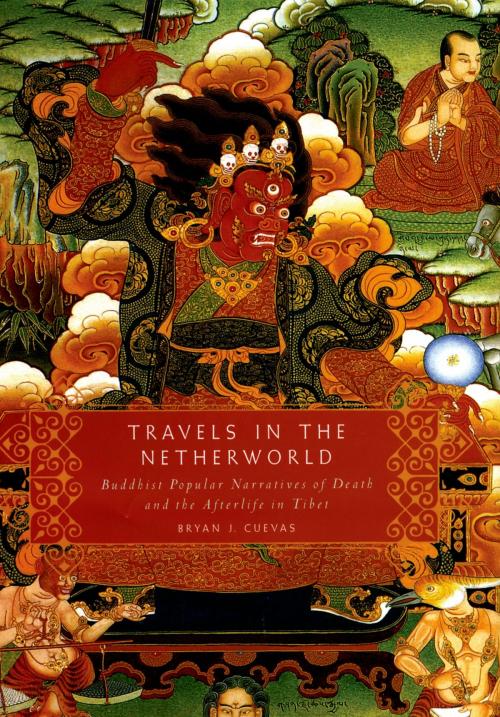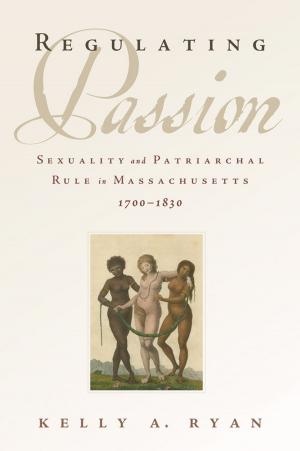Travels in the Netherworld
Buddhist Popular Narratives of Death and the Afterlife in Tibet
Nonfiction, Social & Cultural Studies, Social Science, Sociology, Marriage & Family, Religion & Spirituality, Eastern Religions, Buddhism, Theology| Author: | Bryan J. Cuevas | ISBN: | 9780190450892 |
| Publisher: | Oxford University Press | Publication: | April 2, 2008 |
| Imprint: | Oxford University Press | Language: | English |
| Author: | Bryan J. Cuevas |
| ISBN: | 9780190450892 |
| Publisher: | Oxford University Press |
| Publication: | April 2, 2008 |
| Imprint: | Oxford University Press |
| Language: | English |
In Travels in the Netherworld, Bryan J. Cuevas examines a fascinating but little-known genre of Tibetan narrative literature about the délok, ordinary men and women who claim to have died, traveled through hell, and then returned from the afterlife. These narratives enjoy audiences ranging from the most sophisticated monastic scholars to pious townsfolk, villagers, and nomads. Their accounts emphasize the universal Buddhist principles of impermanence and worldly suffering, the fluctuations of karma, and the feasibility of obtaining a favorable rebirth through virtue and merit. Providing a clear, detailed analysis of four vivid return-from-death tales, including the stories of a Tibetan housewife, a lama, a young noble woman, and a Buddhist monk, Cuevas argues that these narratives express ideas about death and the afterlife that held wide currency among all classes of faithful Buddhists in Tibet. Relying on a diversity of traditional Tibetan sources, Buddhist canonical scriptures, scholastic textbooks, ritual and meditation manuals, and medical treatises, in addition to the délok works themselves, Cuevas surveys a broad range of popular Tibetan Buddhist ideas about death and dying. He explores beliefs about the vulnerability of the soul and its journey beyond death, karmic retribution and the terrors of hell, the nature of demons and demonic possession, ghosts, and reanimated corpses. Cuevas argues that these extraordinary accounts exhibit flexibility between social and religious categories that are conventionally polarized and concludes that, contrary to the accepted wisdom, such rigid divisions as elite and folk, monastic and lay religion are not sufficiently representative of traditional Tibetan Buddhism on the ground. This study offers innovative perspectives on popular religion in Tibet and fills a gap in an important field of Tibetan literature.
In Travels in the Netherworld, Bryan J. Cuevas examines a fascinating but little-known genre of Tibetan narrative literature about the délok, ordinary men and women who claim to have died, traveled through hell, and then returned from the afterlife. These narratives enjoy audiences ranging from the most sophisticated monastic scholars to pious townsfolk, villagers, and nomads. Their accounts emphasize the universal Buddhist principles of impermanence and worldly suffering, the fluctuations of karma, and the feasibility of obtaining a favorable rebirth through virtue and merit. Providing a clear, detailed analysis of four vivid return-from-death tales, including the stories of a Tibetan housewife, a lama, a young noble woman, and a Buddhist monk, Cuevas argues that these narratives express ideas about death and the afterlife that held wide currency among all classes of faithful Buddhists in Tibet. Relying on a diversity of traditional Tibetan sources, Buddhist canonical scriptures, scholastic textbooks, ritual and meditation manuals, and medical treatises, in addition to the délok works themselves, Cuevas surveys a broad range of popular Tibetan Buddhist ideas about death and dying. He explores beliefs about the vulnerability of the soul and its journey beyond death, karmic retribution and the terrors of hell, the nature of demons and demonic possession, ghosts, and reanimated corpses. Cuevas argues that these extraordinary accounts exhibit flexibility between social and religious categories that are conventionally polarized and concludes that, contrary to the accepted wisdom, such rigid divisions as elite and folk, monastic and lay religion are not sufficiently representative of traditional Tibetan Buddhism on the ground. This study offers innovative perspectives on popular religion in Tibet and fills a gap in an important field of Tibetan literature.















